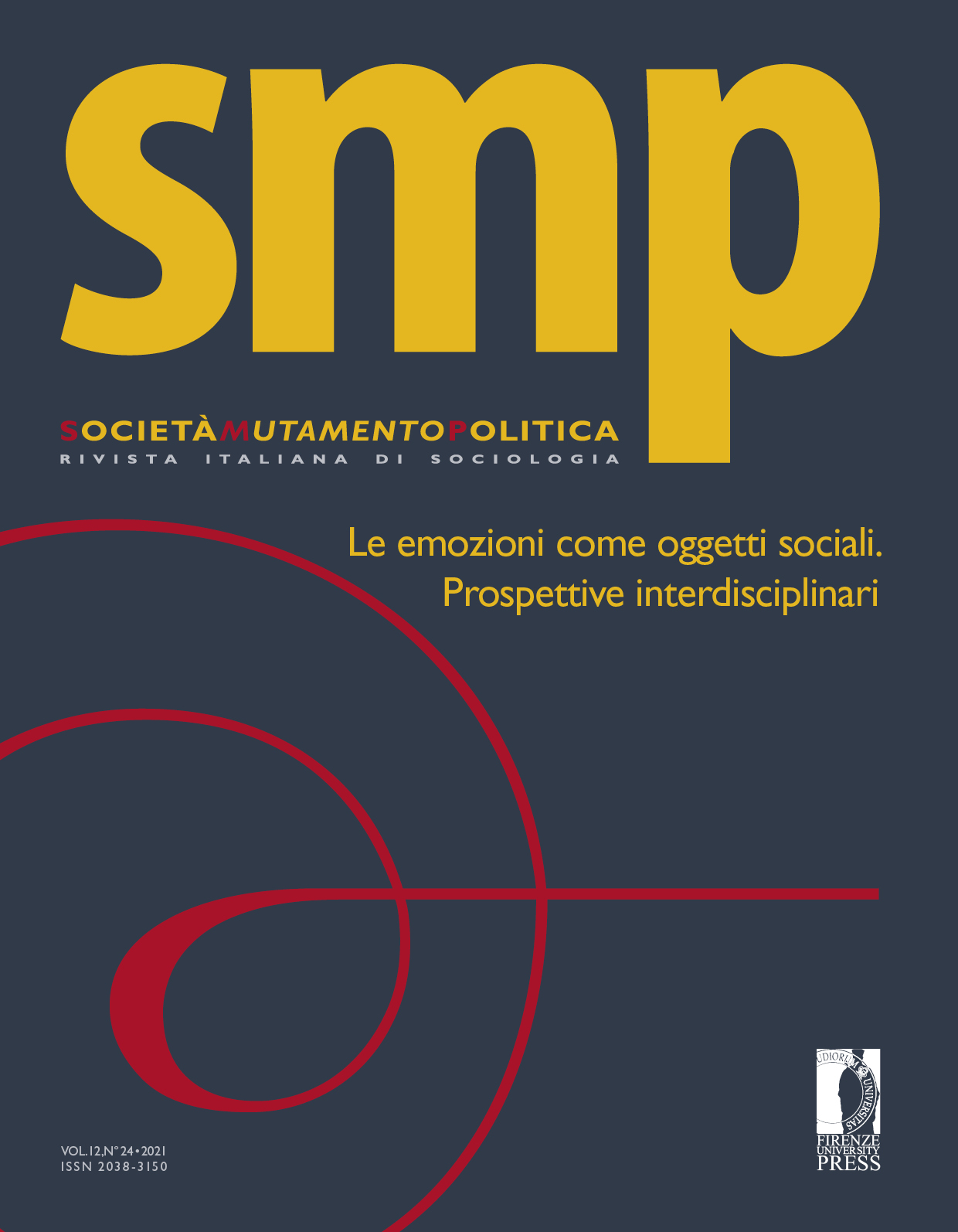Published 2021-11-16
Keywords
- Pragmatism,
- theory of emotions,
- sociology of emotions,
- John Dewey,
- George Herbert Mead
How to Cite
Abstract
This article aims to show how the ideas of pragmatists can dialogue with some approaches in the domain of sociology of emotions, integrating some possible shortcomings on the theoretical level. Differently from Arlie Hochschild’s dramaturgical approach and Randal Collins’ ritual approach to emotions, the pragmatists’ non-reductionist naturalism, which advocates the thesis of the continuity between organic and social, nature and culture, offers a solid conceptual framework to support a theory of emotions alternative to constructivism. The thesis of the pragmatists is that there is no pure, pre-social level of emotions, precisely because emotions are themselves the tools of social interaction, through which conducts regulate each other in a cooperative and/or conflictual sense. John Dewey’s and George Herbert Mead’s approach to emotions therefore allows us to address the question of the ways in which the social dimension of the human environment affects the configuration of emotions. Moreover, their approach helps us to abandon the dichotomy between feeling and expressing that seems to plague much of the sociology of emotions.


